One of the hardest aspects of working in the arts, or any creative field, is managing your time and emotions amidst turbulence, no matter its source. Thing is, there’s always something trying to distract us: health, family, economy, climate change, culture wars...How do we push through?
I just got back from a week of studying novel writing with Jennifer Haigh at the Appalachian Writers’ Workshop. Jennifer pushes through distractions by taking small steps on a regular basis. She’s quick to admit that thinking about your project (or researching it) is part of the creative process, but at some point, you’ve got to put pen to paper. This is where her novel-writing method comes into play. “Method helps,” she assured us. “Method demystifies.”
A Novel-Writing Method
I was with Jennifer for five days, so you can’t expect a full transcript! I’ve selected four big takeaways for you here.
1. Write About the Novel First
When she starts a novel, Jennifer writes ABOUT the novel. This is a Jedi mind trick because writing ABOUT the novel reduces a writer’s anxiety. “You can tell yourself you’re not writing the novel yet, you’re just writing about it,” she says.
Jennifer starts by writing bios of the important characters and focuses on the details that make them real, right down to their daily routines, medications, clothing preferences, and so on. She says, “Characters become characters in the process of writing them.”
Obviously I can’t replicate the experience of Jennifer’s workshop in a newsletter, but I can give you a taste of it by sharing a video of her reading from her novel, Mercy Street, for which she earned the 2023 Mark Twain American Voice in Literature Award. What she reads is a character study of Claudia Birch, one of the Mercy Street protagonists, as a child. The scenes have no direct bearing on the storyline itself, but they give us reasons to care about Claudia and help us understand why she makes some key choices as an adult.
2. Research will Stall the Writing Process
Jennifer cautioned us about spending too much time researching the times and technologies of our novels, which made me feel seen. She says, “Your goal is to write the flawed first draft. THEN fix it. The first draft is a magic trick that defies the laws of physics. Just get through it.”
When I met with her one-on-one to discuss my opening chapter, she assured me I know everything I need to know to write the first draft already. “You can fill in the blanks after you finish the first draft.” I’m going to start writing as if that’s true.
3. Lists will Support the Writing Process
As Jennifer is writing ABOUT the novel, she makes three list of scenes:
To be written,
Written but not placed in order, and
Causality between the scenes
She writes the scenes that call to her, which means she doesn’t write her books starting at the beginning. I really like the idea of writing a scene when I’m ready to write it, even if it’s out of order.
About that last list—causality between the scenes. Jennifer reminded us that literary fiction doesn’t run on plot; it runs on causality (compared to genre fiction like police procedurals or romances, which are plot-driven). If the middle of a book sags, she says, “it’s because the causal chain is broken and the outcome of one scene doesn’t matter to any of the others.”
4. Writing Great Dialog
For each of her main characters, Jennifer keeps a running list of the words they overuse, including curse words, slang, professional jargon, and regionalisms. She says don’t watch TV to learn writing dialog because it’s too often glib, canned, and shallow. “In TV dialog, people are talking just to talk because that’s what TV has to work with.”
Harsh? Maybe, but it’s also true. To use writing to its best effect, you must get into the heads of the characters. Interiority, as it’s called, is the superpower of novels.
Here’s a final piece of advice:
Readers are people and they like reading about people. Begin your story with people interacting with each other or with the world around them. ~Jennifer Haigh
Jennifer’s eighth novel, Rabbit Moon, will be published in April 2025. It tells the story of an divorced American couple who travel to China when their estranged daughter, who’s been teaching English there, is struck by a hit-and-run driver. I cannot wait to read it!
If you have great writing advice or Jedi mind tricks for staying productive, please share them, and I’ll include them in an upcoming newsletter.
Update on “Along the Ohio: Traveling America’s Dividing Line”
I have great news! My book about the Ohio River’s racial legacy is in peer review at a major university press. This means experts in history, sociology, and public policy will give me advice how to improve it, including suggested topics and interviews, before it goes to press (likely 2026). Can’t say more than that at this time, but hope to have a full report for my fourth quarterly update. Thanks for your good wishes and notes of encouragement.
Here I am, reading from “Along the Ohio: Traveling America’s Dividing Line” at the 47th Appalachian Writer’s Workshop.
Book Recommendations
If you haven't read this book, it's new to you. ~ Ann Patchett
I have just discovered Patricia Highsmith, whose work may be more familiar to you as movies than as books. I like listening to murder mysteries, so Audible started recommending Highsmith to me. I loved Strangers on a Train and The Talented Mr. Ripley, which have repeatedly been adapted for the screen. Coincidentally, the NYT Books podcast just featured Tom Ripley in the July Book Club.
I spoke of writing character interiority earlier, and Highsmith manages to provide plenty of it, driving you deep into the heads of sociopaths. She has an ineffable talent for plot and pacing, so I'm taking careful notes for my (eventual) novel.
Reading stories set in the 1950s shows how much has changed about our daily lives with technologies that watch, listen, and tell on us. We know this intellectually, but being immersed in that era really brings it home. As David Bianculli of KQED observes: “Ripley was a grifter whose cons worked primarily because the passage of information then was so slow—no cellphones, no internet and plenty of ways to intercept, or lose, things in the mail. Back then, pulling his scams, Ripley could get away with murder. And eventually, he tries to.”
The Talented Mr. Ripley is now a Netflix series starring one of my favorite villain actors, Andrew Scott (Professor Moriarity in the Benedict Cumberbatch Sherlock series). Shot in black-and-white, it’s an eight-hour visual feast. As Linda Holmes of NPPR says, “This is chilled noir filmmaking, where deep shadows land in cheekbone hollows and light is carved into blocks by bars and blinds. Scott's eyes don't just look dark; they look like onyx marbles.”
“Color photography can be done well or badly, thoughtfully or thoughtlessly. Black and white is the same. There is an interplay between light and architecture in Ripley, for instance, that would not be nearly as effective in color. Also, this is a story with some awful violence, and a scene of violence that does without the red blood that has been used and overused to the point of numbness is not any less brutal.”
Truly, this film is so gorgeous, you could turn off the sound and enjoy the cinematography. I’d pay good money for a screen saver of Ripley scenes.
In a couple of weeks I’m headed out on my motorcycle to Maine for the BMW Riders Association National Rally. Maine in late summer! I occasionally post my travels on Instagram, if you’re interested.
Until September…
Tamela




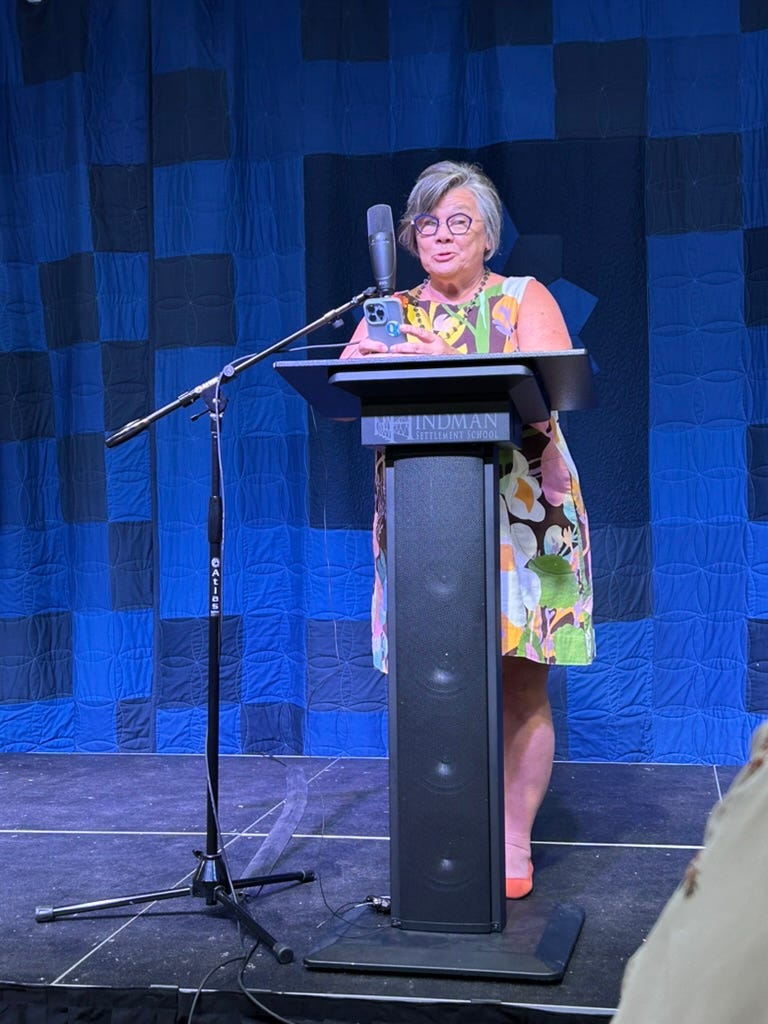
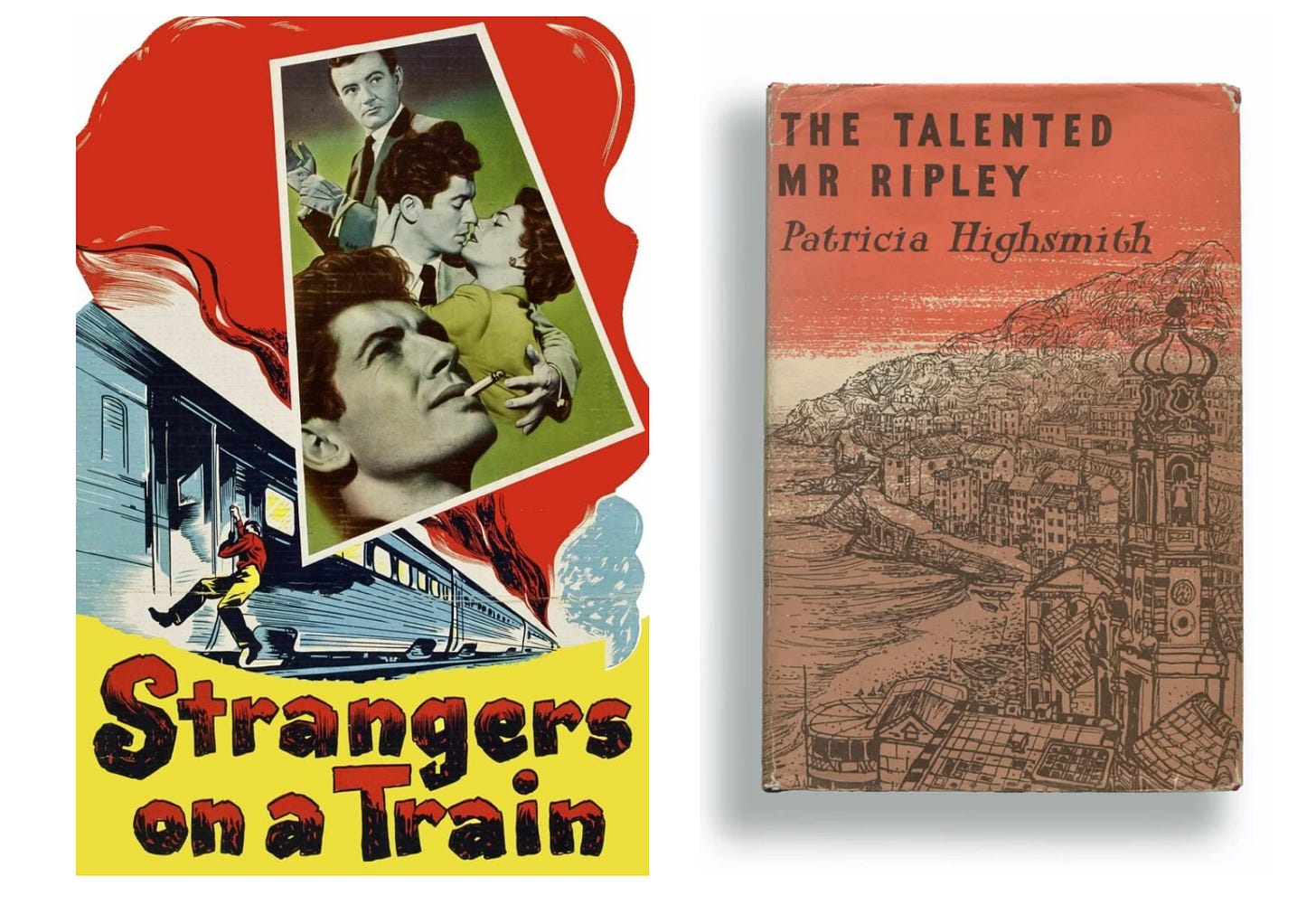
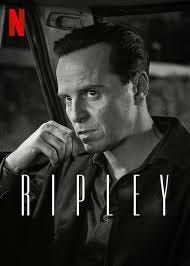

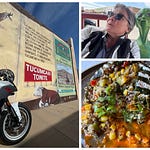
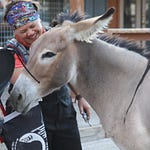




Share this post